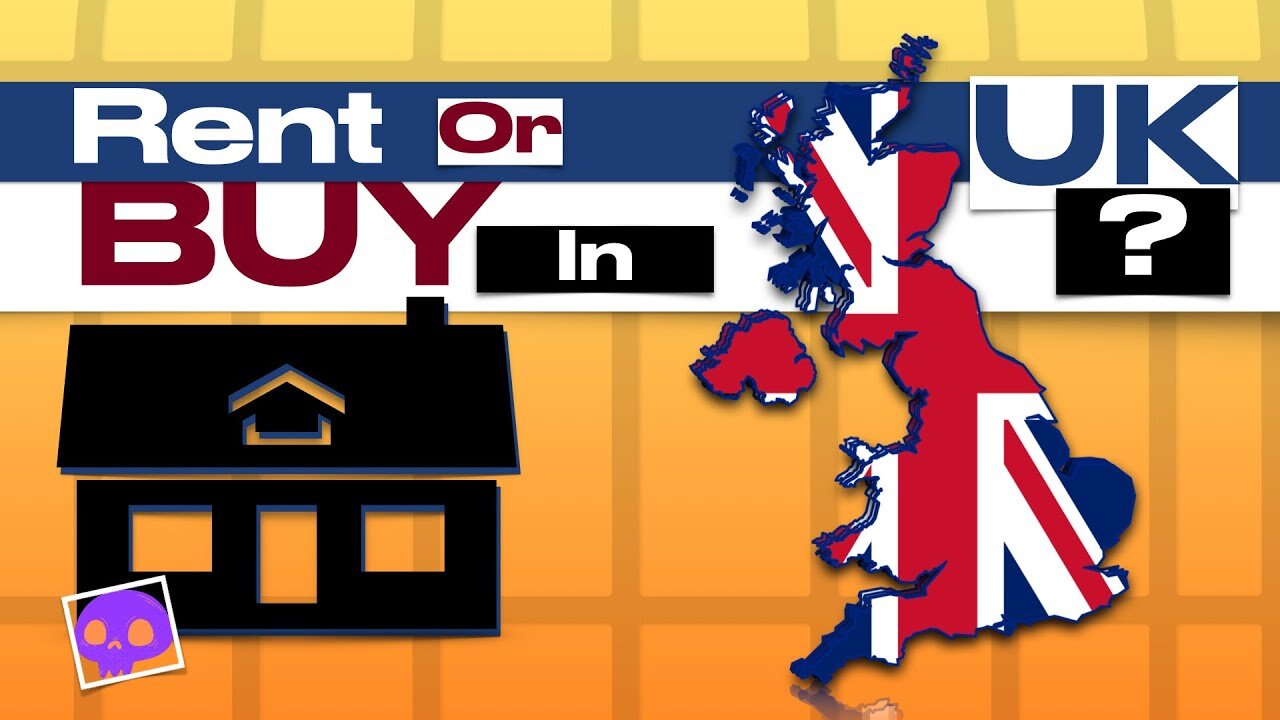Premium Only Content

Renting, Rather than Buying in the UK?
one can debate that, rent means more money is going into the pocket of your landlord. However, renting is usually quicker, cheaper, and offers more flexibility than buying.
Critically, people born outside the UK are much more likely to live in rented accommodation than people born in the UK. Foreign-born individuals have significantly lower ownership rates – 43% are homeowners – than the UK-born, of whom 69% are homeowners. Of those living in rented accommodation, most people born abroad are in the private rented sector. Migrants are therefore unlikely to require newly built housing to purchase. Rather, they need a house to rent. Immigration increases the demand for housing is only part of the story. The net number of housing completions in the UK has fallen from 378,00 in 1969-70 to Between 2018 and 2022, this statistic displays the expected number of house completions in the United Kingdom (UK). In 2022, roughly 205 thousand new residences are planned to be completed per year. The * decline* is spread across the country and can, in part, be blamed for the housing shortage.
The average rent that you will pay in the UK varies depending on where you live and the type of accommodation you have. A one-bedroom flat averages at £758 (~ USD 1000) per month if you're in the city; £614 (~ USD 810) if you're outside of the city. It may be more if your energy costs are included in the rent.
on average, house prices have fallen by 1.1% since December 2019. there has been an annual price rise of 1.3%, which makes the least property in the UK valued at £231,000.
-
 19:33
19:33
Chris From The 740
2 hours agoCyelee Wolf EDG Review: Rugged Enclosed Emitter and Perfect for EDC!
2.04K -
 LIVE
LIVE
iAmtyrantt
2 hours ago $0.22 earnedSplitgate 2 Beta!! #taketheOath
49 watching -
 LIVE
LIVE
Bleariio
3 hours agoDays Gone LIVE – Freakers, Bikes, and Survival!
84 watching -
 LIVE
LIVE
VladsGamingCartel
2 hours agoDoom Dark Ages | Fortnite | Vlad & Tippsy Stream #BadAtGaming
39 watching -
 LIVE
LIVE
Dirty Old Plumber games
3 hours agoRoadCraft | Let's craft roads in RoadCraft. Pt.4
36 watching -
 4:34:41
4:34:41
Big Fitz Plays
8 hours agoThis RPG is UNREAL! Clair Obscur: Expedition 33 First Look!
42.2K -
 26:20
26:20
marcushouse
1 day ago $6.93 earnedBREAKING: Starship Launch Approved, and the New Reveal No One Expected!
41.2K20 -
 13:05
13:05
WhaddoYouMeme
2 days ago $11.62 earnedHe AGREED w/ Me…Until it Got Too Spiritual.
62.5K35 -
 5:59:03
5:59:03
Scottish Viking Gaming
6 hours ago💙Premium Creator :|: Sunday Funday :|: Splitgate and beyond!
31.6K3 -
 5:08:47
5:08:47
LittleMissBear
11 hours ago $1.43 earnedAnime Games With MissBear
38.1K1